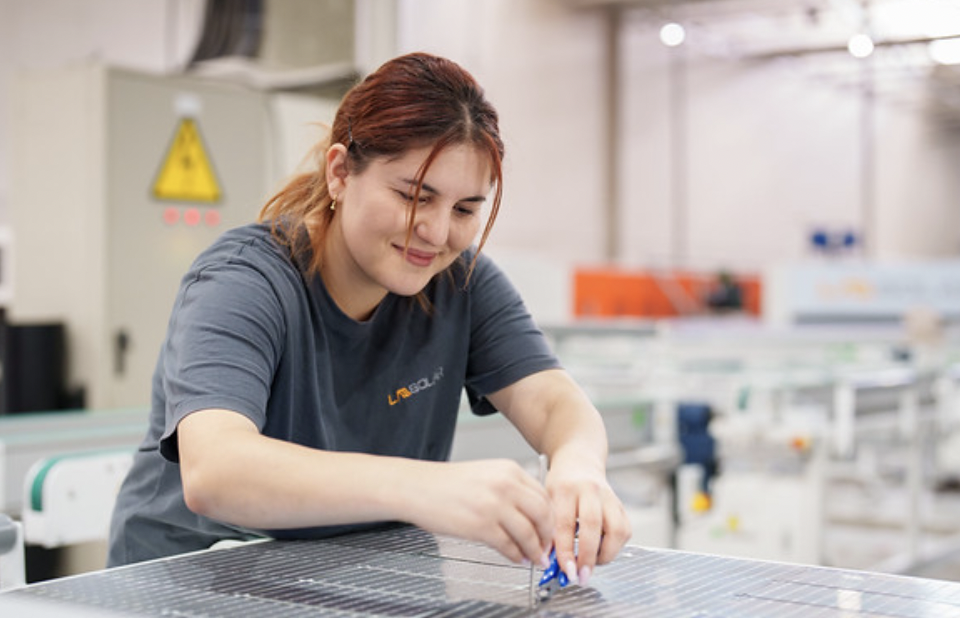You cannot disable strictly necessary cookies. They are necessary for the site to work You cannot disable strictly necessary cookies. They are necessary for the site to work You cannot disable strictly necessary cookies. They are necessary for the site to work You cannot disable strictly necessary cookies. They are necessary for the site to work
History of the EBRD

The European Bank for Reconstruction and Development (EBRD) was established to help build a new, post-Cold War era in Central and Eastern Europe. It has since played a historic role and gained unique expertise in fostering change in the region - and beyond - investing more than €190 billion in over 7,000 projects.
Commitment to the market and entrepreneurship
The EBRD is committed to furthering progress towards ‘market-oriented economies and the promotion of private and entrepreneurial initiative’. This has been its guiding principle since its creation at the beginning of the 1990s and, new challenges and the welcoming of new countries to the EBRD world notwithstanding, will continue to be its mission in years to come.
A turning point in the history of Europe
The EBRD was set up in haste to meet the challenge of an extraordinary moment in Europe’s history, the collapse of communism in its East. In fact, a mere 18 months elapsed between the first mooting of the idea of a European development bank, by President François Mitterrand of France, in October 1989 and its opening for business with headquarters in London in April 1991.
Urgency and the ability to respond to momentous events swiftly and decisively, whether it be the end of the Soviet Union, financial crises, the ‘Arab Uprising,' the coronavirus pandemic or the war on Ukraine have been among the EBRD’s hallmarks from the start.
During the frenetic years of the early 1990s the EBRD’s emphasis on the private sector as the main driver for change in Central and Eastern Europe was vindicated many times over. This was the period that established the EBRD’s reputation as an expert on transition to the open market.
It was heavily involved in areas such as banking systems reform, the liberalisation of prices, privatisation (legalisation and policy dialogue) and the creation of proper legal frameworks for property rights, all vital ingredients for change.
This period also witnessed the start of the EBRD's work to help safeguard and transform the site of the Chernobyl disaster in Ukraine and its involvement in nuclear safety elsewhere as well.
The EBRD's unique mandate
Uniquely for a development bank, the EBRD has a political mandate in that it assists only those countries ‘committed to and applying the principles of multi-party democracy [and]pluralism’.
Safeguarding the environment and a commitment to sustainable energy have also always been central to the EBRD’s activity. A commitment to promote ‘environmentally sound and sustainable development’ was made explicit at its founding.
More recently, our Green Economy Transition approach has made climate finance a key measure of the Bank’s performance. We are now committed to ensuring that, by 2025, the majority of our business volume is green. That target was first hit in 2021, when green finance accounted for 51 per cent of our annual business volume. At our 2021 Annual Meeting our Governors also approved our full alignment with the Paris Agreement by the end of 2022 and we plan to be a majority green bank by 2025.
The coronavirus pandemic of 2020 was a huge challenge to the countries where the EBRD works, all our shareholders and the Bank itself. The EBRD responded by committing all its activity in 2020 and 2021 to countering its economic impact.
The EBRD serves the interests of all its shareholders - 73 countries from five continents plus the European Union and the European Investment Bank - not just those countries which receive its investments (a record €13.1 billion in 2022). At the same time, the number of EBRD shareholders is still increasing; recent new members include China, India, San Marino, Libya, United Arab Emirates, Algeria and Iraq. Indeed, the EBRD is one of only two major multilateral development banks currently expanding its shareholder base.
However many shareholders the EBRD has, we all stand to gain from the EBRD regions' closer and deeper integration into the global economy and their economies’ continued progress on their transition journeys.
Today it is based in new headquarters in London's Canary Wharf, premises which were officially opened by King Charles III in March 2023. And, from its new home, the Bank is doing more than ever before - across three continents - to help the regions where it works on their way.
Presidents of the EBRD
Watch: 'the Bank that's changed lives'
Produced for our 30th anniversary celebrations, this video takes a look back at the EBRD's origins and its path to today's operations and successes.



